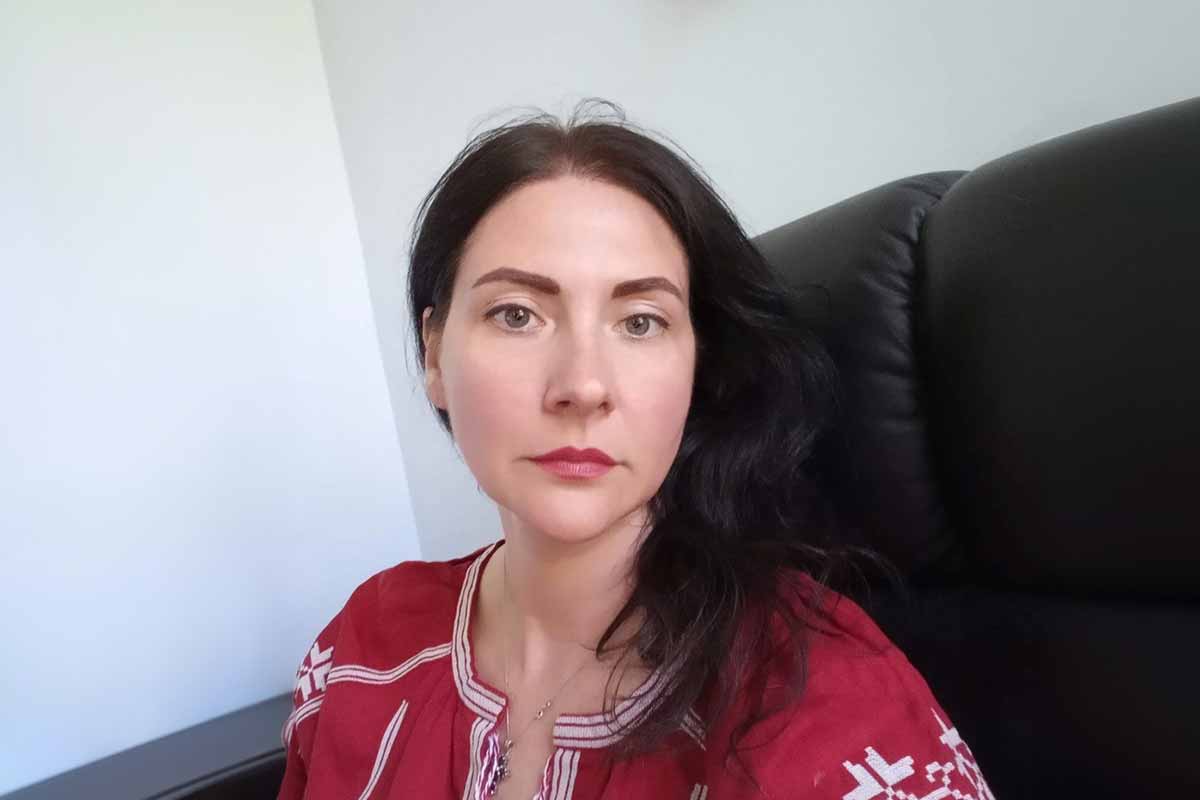“Do Not Be Silent and Do Not Be Afraid”
Victim of illegal detention describes her experience of trying to seek justice through the courts.
On July 26, 2022, Russian troops broke into the house in Kherson where Lyudmyla Shumkova was hiding with her parents and sister.
Shumkova’s nephew Oleksandr Shumkov, a former member of the Right Sector nationalist organisation, had been serving as a soldier in 2017 in Kherson when he was seized by Russian forces. He spent several years in prison in Russia before managing to return to Ukraine in late 2020.
After Russian troops captured Kherson after the full-scale invasion, their special services sought out Shumkov’s family in an attempt to discover his whereabouts.
Shumkova and her sister were pushed into SUVs with their heads covered before being taken to the basement of a building. They were kept in cramped conditions, with continuous light and meagre rations of food served once a day, until their release on September 17, 2022. Here, Shumkova tells IWPR’s Olga Golovina of her experience as a victim seeking justice through the courts.

Could you describe your interaction with law enforcement agencies regarding your case? How would you describe the overall communication and interaction?
My sister and I personally submitted an application to the police about our illegal detention during the occupation. We were illegally detained first in the basement of the main department of the National Police in the Kherson region at Luteranska Street 4, and then in the temporary detention facility at Teploenergetikiv 3. I had to apply to the police on my own after the liberation of Kherson. During the reception of the application, the police representative behaved in a friendly and correct manner. After some time, the police called and informed me that my sister and I needed to come on a specified day and time for the documentation of procedural actions. During the investigation, the police representative also behaved kindly and respectfully. Investigative actions were recorded on video and in the protocol. We were given the status of victims. We spoke with the police several times... and then we were called to investigative actions regarding the identification of possible war criminals from photographs. After that, we barely communicated with the police; most of the communication currently takes place with representatives of the Kherson prosecutor's office.
What challenges have you faced trying to communicate with law enforcement agencies about your experience as a victim of war crimes?
During communication with representatives of the Kherson prosecutor's office in the summer of 2023, it became clear that the police had lost the first protocols of interrogation as a victim, which were drawn up in December 2022. Therefore, representatives of the prosecutor's office interrogated my sister and me again as victims with the preparation of certain procedural documents. In addition, since the first interrogation protocols were lost, the incident in which my sister and I were illegally detained in the basement of the National Security Service in the Kherson Region at 4 Luteranska Street was documented only in the summer of 2023.
In addition, in order to insert the fact of illegal deprivation of personal freedom as a result of Russian aggression to the interdepartmental commission in the ministry of reintegration, we had to provide an extract from the register of pre-trial investigations. I applied to the investigator to obtain such an extract, but until I submitted a written application to the National Police of Ukraine, the investigator did not provide me with an extract.
There are difficulties with getting acquainted with the case materials. Since we are currently in Odesa, and the investigative department of the Kherson Police is in Mykolaiv, the review of the case materials is not being considered properly.
How could the interaction of law enforcement agencies with victims of war crimes in Ukraine be improved, in particular in cases like yours?
In my opinion, this is need for an improvement in communication. After all, I can say from my experience that they do not always pay attention to the information provided by the victim. For a long time, such information is not checked, time is lost to collect the evidence base on war criminals, the evidence base itself is lost in cases on local collaborators, etc. Maybe this is just my personal experience, but really communication is not enough.
Did you receive adequate support or assistance from victim support services or legal aid organizations when dealing with law enforcement? If not, what additional support would be helpful?
No, I did not receive such support. Recently, I only learned about the existence of the Coordinating Center for the Support of Victims and Witnesses at the Office of the General Prosecutor from representatives of the Media Initiative for Human Rights, but I did not receive any support from this centre. As for additional support, advocacy and information or consultative support is possible, the programmes for rehabilitation and the realization of one's rights as a victim of war crimes are not always known. I know that under the ministry of reintegration, a certain number of organisations, such as the Center for the Rescued, have been formed. But I can personally say from my experience that I did not receive any real help from such organisations. As for the help I received, it was non-governmental public organisations that I learned about from other victims. There is a certain level of communication and information exchange among the victims.
Looking back on your experience, what advice would you give to other victims of war crimes in Ukraine who may need to interact with law enforcement agencies?
It is difficult to give advice because each case is individual. But I can say from my experience that you must be persistent in exercising your rights, not be silent and not be afraid.
